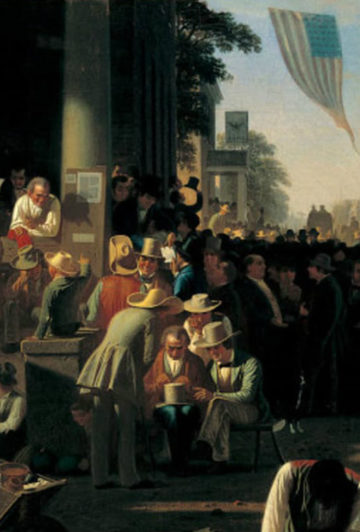Tocqueville declares himself to be a “new kind” of liberal, and the most striking feature of his reform is to propose, and to find in America, an alliance, rather than hostility, between religion and liberty. As opposed to an overt foundation in the state of nature, he sets the actual practice of religion in America, which brings moderation and limitation to liberty. Religion also supplies the notion of soul, which validates the prideful free agency of humans as against the determinism and materialism of the state of nature. It helps to secure modern democracy against the evils Tocqueville discerned and so notably described of individualism and mild despotism. And it provides the basis for the art of the legislator, a classical function revived by Tocqueville to use both nature and convention in cooperation, instead of distinct and at odds.
The Verdict of the People, George Caleb Bingham, 1855
